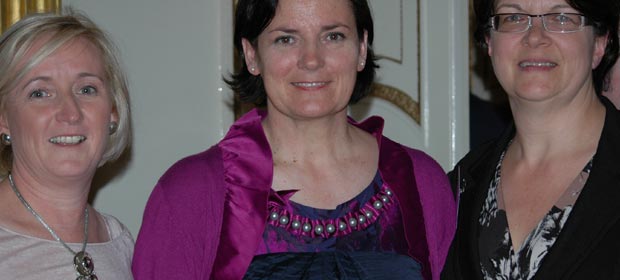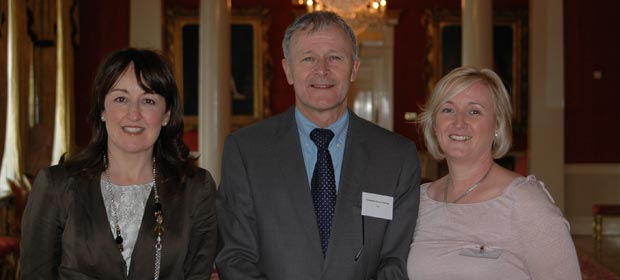A national early warning score for the early detection of illness and management of patients, developed by the HSE National Acute Medicine Programme, won a Taoiseach’s Public Service Excellence Award. Ireland is the first known country in the world to agree a National Early Warning Score.
Avilene Casey, Director of Nursing National Acute Medicine Programme, Office Complex, Kilcreene Hospital Grounds, Kilkenny said: “The Implementation of the National Acute Medicine Programme with the National Early Warning Score and COMPASS Education Programme represents the most radical change seen in a generation of healthcare. It has the potential to save and avert deterioration in so many patients as well as support the staff in their care giving. It was brilliant to be part of such a great change project.”

She said the Acute Medicine Programme was about radical change for the way physicians and hospitals work, less trolley waits, better quality & safer care for patients, care for patients in a more appropriate setting, reduced elective waiting times for admission / day cases, etc., and improved efficiency e.g. faster access to investigations and real savings for the health service.
For patients this meant a standardised approach to safe, more efficient and effective quality care for patients.

There were quantifiable savings to the health service – improved utilisation of beds, including ICU beds, reduced length of stay and savings on staff education.
She said patient safety and quality were central to the delivery of healthcare. Recent evidence identified that a systematic approach to early detection and management of patients, whose condition deteriorates, improved outcomes.
It has the potential to save and avert deterioration in so many patients as well as support the staff in their care giving.
Early warning scores had been developed to facilitate early detection of deterioration by categorising patients’ severity of illness, prompting a medical review at specific trigger points, whilst escalating care in a planned way.
Eilish Croke, Project Lead NEWS and COMPASS, said the challenge was to agree a National Early Warning Score (NEWS) and supporting education programme for use in all acute hospitals in the country to ensure a common language in relation to deteriorating patients.
Said Eilish: “The aim was to agree one integrated solution for a NEWS supported by an education programme for the early detection and timely management of deteriorating patients in acute hospital services.”
A ten step approach was adopted as follows:
- Step 1: A National Audit established a baseline of practice. A literature review was carried out.
- Step 2: Multi-disciplinary National Governance and Advisory Groups were set up.
- Step 3: A wide consultation process ensued. The freely available Australian COMPASS Education Programme was adapted to suit the Irish context.
- Step 4: The National Early Warning Score and associated (COMPASS) Education Programme was agreed and signed off by the HSE in April 2011. A ‘Train the Trainer’ model was adopted for staff training.
- Step 5: The programme was reviewed following initial implementation using a quality
- improvement cycle.
- Step 6: Colleagues in Wales, England and Australia were consulted.
- Step 7: The education programme was amended. A new Patient Observation Chart was introduced.
- The VitalPAC (ViEWS) parameters were adopted as the National Early Warning Score, following the availability of new international evidence.
- Step 8: A website was developed.
- Step 9: The upgraded programme was signed off by senior management in the HSE.
- Step 10: The National Launch of the programme took place on March 27, 2012.
The National Early Warning Score and associated COMPASS Education Programme is being rolled out to all acute hospital services nationally. (The use of a NEWS on all inpatients is a Health Information and Quality Authority recommendation). A national database tracks progress on implementation. The use of an ‘issues log’ provides a feedback mechanism for staff.
Following implementation of the NEWS and COMPASS Programme, a national evaluation is planned.
Prof. Garry Courtney, National Clinical Lead for the HSE Acute Medicine Programme said “NEWS will have significant implications for ambulance (road/air) retrieval and transport of lower acuity patients, as this will be one of the key issues for the proposed new Hospital Trusts.”

